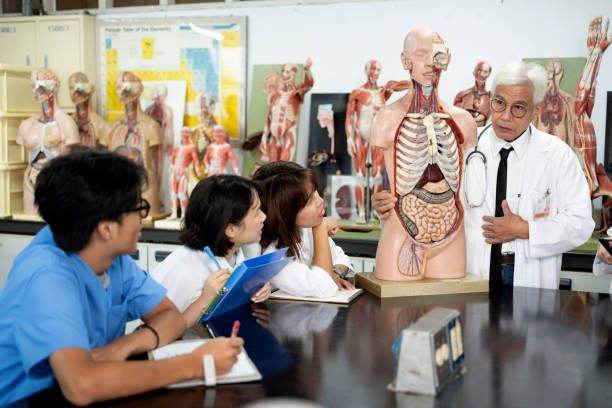Experiencing chest pain can be alarming and is one of the most prevalent symptoms, prompting people to seek medical attention. While it doesn’t always stem from heart issues, it’s vital to take chest pain seriously, as it can be a sign of significant cardiac problems. In this piece, we’ll explore the relationship between chest pain and heart health, identify when it might indicate a more serious condition, and discuss why seeking help at an urgent treatment center can be essential.
Common Causes of Chest Pain
Chest pain can be caused by various factors, some of which are not related to the heart. Some common causes include:
- Musculoskeletal pain: This type of pain can occur due to a pulled muscle or inflammation of the ribs and cartilage.
- Gastroesophageal reflux disease (GERD): Acid reflux can cause a burning sensation in the chest, often confused with heart-related chest pain.
- Panic attacks: Stress or anxiety can lead to sharp chest pains or discomfort, which are typically non-cardiac in origin.
- Pulmonary conditions: Respiratory issues like pneumonia or a pulmonary embolism can also cause chest pain.
While these conditions can lead to chest pain, it’s important to understand when chest pain might signal a more serious heart issue.
Heart-Related Chest Pain: What You Need to Know
Chest pain related to the heart is often more intense, sudden, and accompanied by other symptoms like shortness of breath, nausea, or lightheadedness. Some heart-related causes of chest pain include:
1. Angina
Angina is a type of chest pain that occurs when the heart muscle does not get enough oxygen-rich blood. It is typically triggered by physical exertion or emotional stress and is often described as a squeezing or pressure-like sensation in the chest. Angina may subside with rest, but it is important to seek medical evaluation to rule out more severe conditions, such as a heart attack.
2. Heart Attack (Myocardial Infarction)
A heart attack occurs when a blockage in one of the coronary arteries prevents blood from reaching the heart muscle. This can cause significant chest pain, along with symptoms like:
- Radiating pain in the arms, back, neck, or jaw
- Difficulty breathing
- Sweating
- Dizziness or lightheadedness
- Nausea or vomiting
Chest pain associated with a heart attack is usually sudden, severe, and doesn’t go away with rest. It is a medical emergency that requires immediate treatment at an urgent treatment centre or hospital.
3. Pericarditis
Pericarditis refers to inflammation of the pericardium, the membrane surrounding the heart. This condition can cause sharp, stabbing chest pain that worsens when lying down or breathing deeply. Pericarditis can result from viral infections, autoimmune diseases, or other causes. Although not always life-threatening, it still requires prompt attention from a healthcare provider.
4. Aortic Dissection
An aortic dissection is a life-threatening condition where the inner layer of the aorta (the largest blood vessel in the body) tears. This tear causes severe, sudden chest pain that often radiates to the back. It is considered a medical emergency, and urgent treatment is required to prevent further complications such as organ failure or death.
When Should You Seek Medical Care for Chest Pain?
If you experience chest pain that is severe, sudden, or accompanied by other symptoms like shortness of breath or sweating, it’s critical to seek immediate medical attention. You can go to an urgent treatment centre for evaluation if the chest pain is not severe but concerning, or if you are unsure of the cause.
Here are some signs that chest pain may require urgent care:
- Chest pain lasting more than a few minutes
- Pain radiating to the left arm, jaw, or back
- Shortness of breath or difficulty breathing
- Nausea, lightheadedness, or fainting
- A feeling of impending doom or anxiety
In these cases, it’s better to err on the side of caution and visit an urgent treatment centre or emergency room. They can perform tests such as an electrocardiogram (ECG), blood tests, or chest X-rays to diagnose the cause of the pain and provide appropriate treatment.
The Importance of Early Intervention
When it comes to heart health, early intervention can make all the difference. If heart disease or a related condition is diagnosed early, treatment can begin sooner, potentially preventing more severe complications like heart failure or permanent heart damage.
For individuals who are at risk for heart disease—due to factors such as high blood pressure, diabetes, smoking, or a family history of heart disease—being aware of the signs of chest pain is particularly important. Regular check-ups and lifestyle changes, such as maintaining a healthy weight, quitting smoking, eating a balanced diet, and exercising regularly, can help reduce the risk of heart-related chest pain.
What to Expect at an Urgent Treatment Centre
If you visit an urgent treatment centre with chest pain, healthcare professionals will first assess your symptoms and medical history. They may ask questions about:
- The nature of the pain (sharp, dull, pressure-like, etc.)
- When the pain started and how long it lasts
- Any additional symptoms (nausea, sweating, difficulty breathing)
In addition to a physical examination, diagnostic tests will be performed to help determine the cause of the chest pain. These tests may include:
- Electrocardiogram (ECG): A test that measures the heart’s electrical activity to detect any irregularities.
- Chest X-ray: To check for lung issues, pneumonia, or other abnormalities.
- Blood tests: To look for markers of a heart attack or other underlying conditions.
- Echocardiogram: An ultrasound of the heart to assess its function and structure.
If the urgent treatment centre identifies signs of a heart-related issue, they may refer you to the hospital for more extensive treatment or even emergency surgery.
Preventing Heart-Related Chest Pain
While not all chest pain is preventable, there are steps you can take to reduce your risk of heart-related chest pain:
- Adopt a heart-healthy diet: Focus on a diet rich in fruits, vegetables, whole grains, lean proteins, and healthy fats. Reducing salt intake and limiting processed foods can help lower blood pressure and cholesterol.
- Exercise regularly: Regular physical activity helps maintain a healthy weight, improve circulation, and reduce the risk of heart disease.
- Quit smoking: Smoking damages blood vessels and increases the risk of heart disease.
- Manage stress: Chronic stress can contribute to heart problems, so it’s important to find ways to manage stress, such as through relaxation techniques or regular exercise.
- Monitor your health: Regular check-ups with your doctor, especially if you have risk factors for heart disease, are key to early detection and prevention.
Final Thoughts
Chest pain should never be ignored, as it can be a sign of a serious heart condition. Whether the cause is angina, a heart attack, or another heart-related issue, urgent care is essential. If you experience sudden or severe chest pain, especially with other symptoms like shortness of breath or nausea, seeking care at an urgent treatment centre can help ensure you receive the timely treatment you need. By understanding the connection between chest pain and heart health, you can take proactive steps to protect your heart and seek the appropriate care when necessary.













